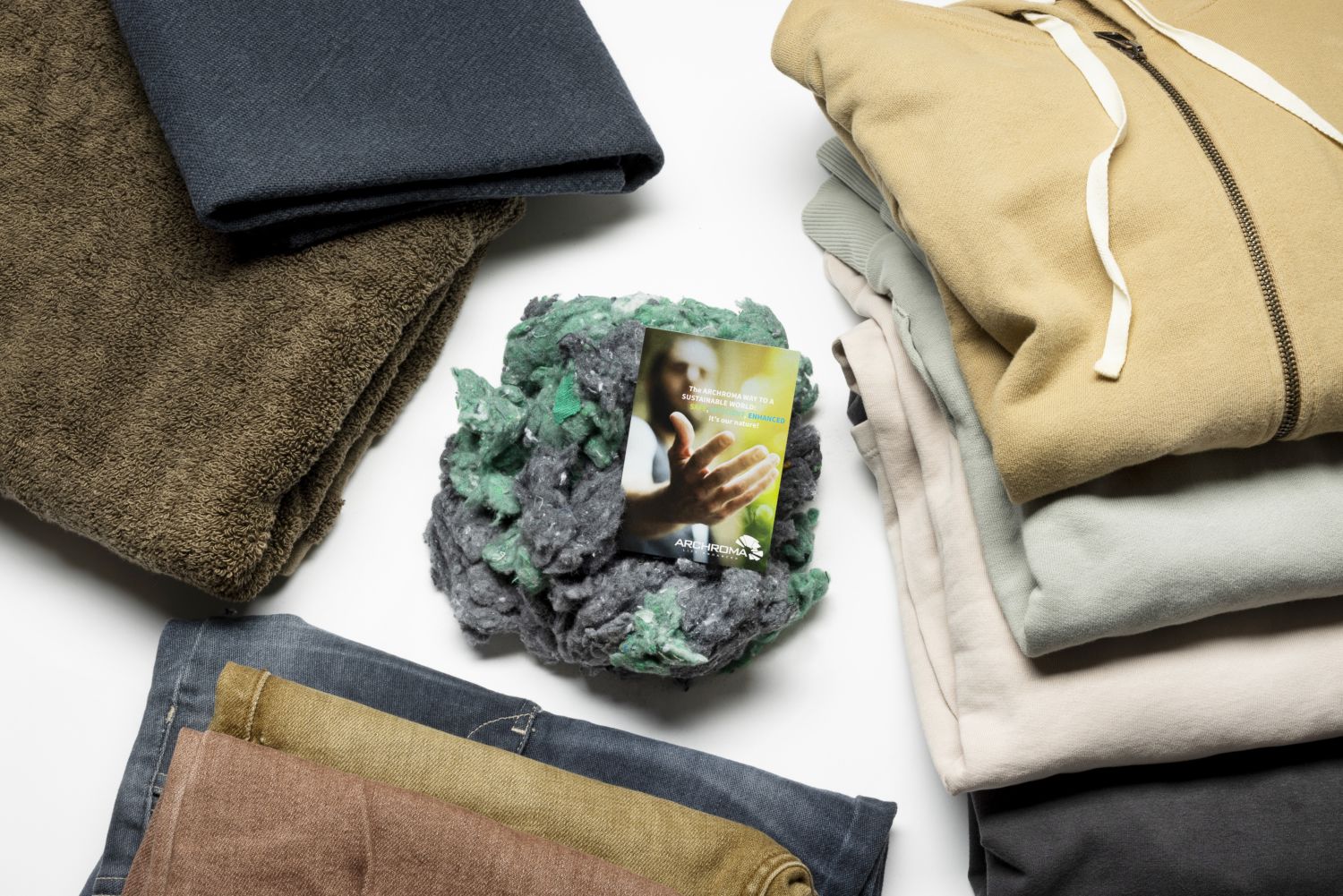In the dynamic and global textile fiber industry with its various manufacturing processes and end-uses, news and information is breaking on a daily basis. International Fiber Journal is tracking stories relevant to our industry from manmade to natural to bio-based fibers, innovations in nonwoven, woven, braided and technical textiles, technologies for additives, bonding, coatings and polymers, and applications from apparel to hygiene to transportation, and more. Here we will post news stories relevant to textile fibers and their downstream applications on an ongoing basis. Please check back for regular updates. If you have news that you feel should be added to this summary report, please email it to Ken Norberg at ken@ifj.com.
Most recent update: January 31, 2023
Archroma Upcycling Textile Waste Into Dyes
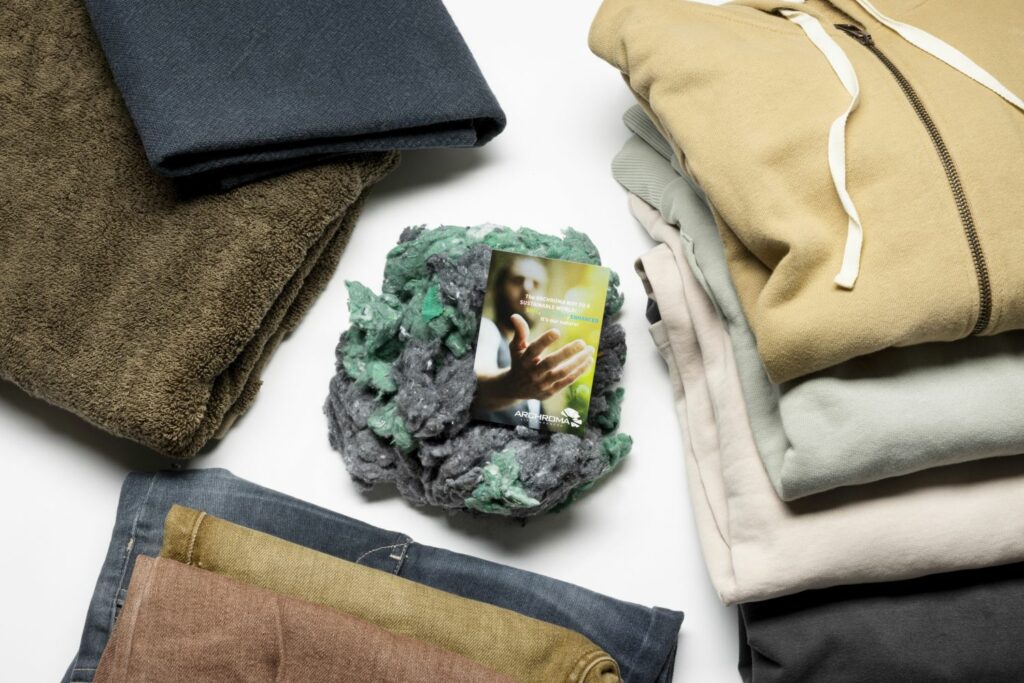
Archroma recently launched FiberColors – a range of five dyes developed by upcycling textile waste into new colors. The products are made using at least 50% waste-based raw materials and are suitable for cotton, viscose, linen and kapok textiles.
Archroma had already developed a way to turn waste from the herbal and food industry into its range of EarthColors® featured by brands such as G-Star, Patagonia, Esprit, Tom Taylor, Pangaia, UGG, and Primark.
Archroma is now introducing another ground-breaking innovation: the FiberColors* technology.
With this technology, Archroma upcycles textile waste into gorgeous colors. The colors are synthesized from a minimum content of 50% waste-based raw material.
Archroma’s R&D experts have developed a way to use cotton and/or polyamide and their blends (with a >95% purity) to substitute the major part of the petroleum-based raw material usually used to make dyestuff.
The resulting FiberColors* range, which is patent-pending and therefore exclusive to Archroma, includes five dyes covering a palette of timeless shades: Diresul® Fiber-Teak (brown shades), Diresul® Fiber-Ochre (olive shades), Diresul® Fiber-Maroon (bordeaux shades), Diresul® Fiber-Slate (blue grey shades) and Diresul® Fiber-Graphite (dark grey shades).
The dyes are especially suited for cellulose fibers such as cotton, viscose, linen and kapok, and can be used in continuous, exhaust, denim and garment dyeing and printing processes.
Thomas Oetterli Appointed CEO at Rieter

Norbert Klapper who has led Rieter as CEO for nine years, recently informed the Board of Directors that he wishes to take on new professional challenges.
The Board of Directors of Rieter Holding Ltd. has taken note of Norbert Klapper’s resignation, expressing its gratitude for his service to Rieter. The Board of Directors has appointed Thomas Oetterli as his successor as CEO of Rieter.
Oetterli, 53, has made a significant contribution to the successful development of the world-leading Schindler Group, starting in 2006 as CEO Switzerland, later as a member of the Group Executive Committee responsible for Europe and China, and from 2016 until 2022 as CEO of the Group. With his comprehensive leadership skills and many years of industrial and international experience, Oetterli brings ideal prerequisites to lead Rieter as a global market leader through the current challenges and successfully develop it further in the long term.
Otterli will take over the function of CEO from Klapper on March 13, 2023.
Rieter Reports Increased Sales
Despite a challenging economic environment, Rieter succeeded in significantly increasing sales and expects a positive EBIT margin for the 2022 financial year.
Due to the rise in inflation, the exceptionally high order backlog of around CHF 1 840 million at the beginning of 2022 was processed at significantly higher costs. It was only possible to offset these higher costs in part by means of price increases and other remedial measures.
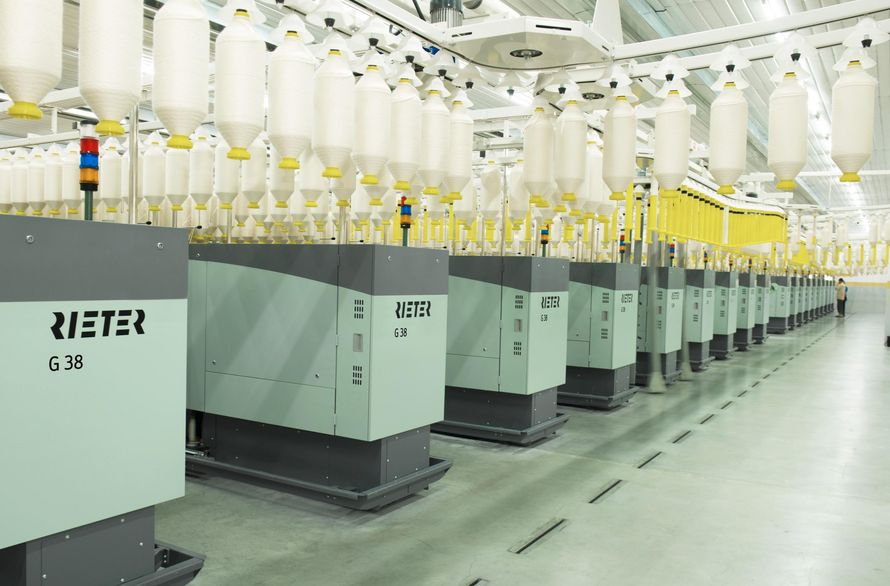
In order to safeguard deliveries, it was necessary to compensate for serious material bottlenecks, particularly in electronic components, which resulted in considerable additional development expenditure.
Major expenses were also incurred in connection with the acquired businesses (Accotex, Temco and Winder).
The realization of sales from the exceptionally high order backlog developed better than expected. With sales of CHF 1 510.9 million, Rieter achieved an increase of 56% compared with the previous year (2021: CHF 969.2 million). In the second half of 2022, especially in the fourth quarter, the measures introduced to address material bottlenecks had a positive impact. Consequently, sales increased to CHF 890.3 million compared with the first six months (first half-year 2022: CHF 620.6 million).
LSU Researcher Develops Smart Textile That Detects Fevers in Infants
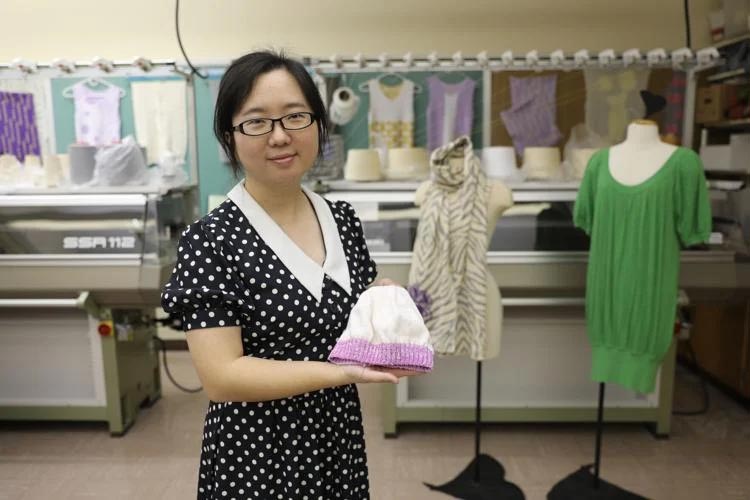
When babies are born, a knit hat is one of the first pieces of clothing they will wear. But what if that hat could be used for more than a warm and cozy covering?
One LSU researcher is exploring ways to use “smart clothing” to track newborns’ temperatures.
Sibei Xia, assistant professor in the LSU Department of Textiles, Apparel Design, and Merchandising, is developing body-tracking wearable technology, or smart clothes, through thermochromic yarn that changes color based on body temperature.
The hat will monitor the infant’s temperature. Its threads will change colors to alert others if there is a temperature spike.
“If the newborn’s temperature goes really high, it’s going to change the hat to a beige color so that we don’t have to necessarily measure the temperature that often or use other technologies to monitor temperature,” Xia said.
Using thermochromic technology may reduce the need to monitor a newborn’s temperature using thermometers and other invasive technologies. The hat also has the potential to reduce the number of times the infant is disturbed for a temperature check.
Xia’s hats are designed to have a band that combines functional and cotton yarn to detect temperature without influencing its comfort.
Xia said advanced knitting technology makes it possible to explore functional yarns in the medical field.
Zünd establishes new subsidiary in Spain
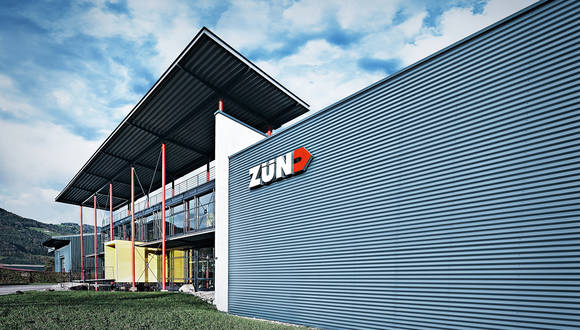
Zünd Systemtechnik is moving closer to its customers on the Iberian Peninsula. Starting January 1, 2023, Zünd acquired its long-standing sales partner Sign-Tronic, which is based in Barcelona, Spain.
Sign-Tronic was established in 1990 and has been an official sales and service partner of Zünd Systemtechnik since 1994. Zund Ibérica serves numerous customers in Spain, Portugal and Andorra.
Jordi Lorente is the new CEO of Zund Ibérica and will be actively supported by the previous co-owner and managing director, Flemming Jensen. Rosa Miralles, also a co-owner, will continue to work in an executive capacity at Zund Ibérica.
Zund Ibérica currently employs 15 people. With more than 1,000 cutters installed, Zund Ibérica is one of the most experienced distributors of both digital cutting systems and software and workflow solutions on the Iberian market. It has its own showroom, which allows customers and interested parties to experience the many possibilities of Zünd’s digital cutting technology in person. Its staff consists of proven experts in consulting, training, installation, and service.
MMI Textiles, Milliken & Company Partner on Tegris® Thermoplastic Composites
MMI Textiles and Milliken & Company announced a commercial partnership that allows MMI to supply Milliken Tegris® Thermoplastic Composite fabric. MMI will be able to offer Tegris® at less than case quantities, effective immediately.
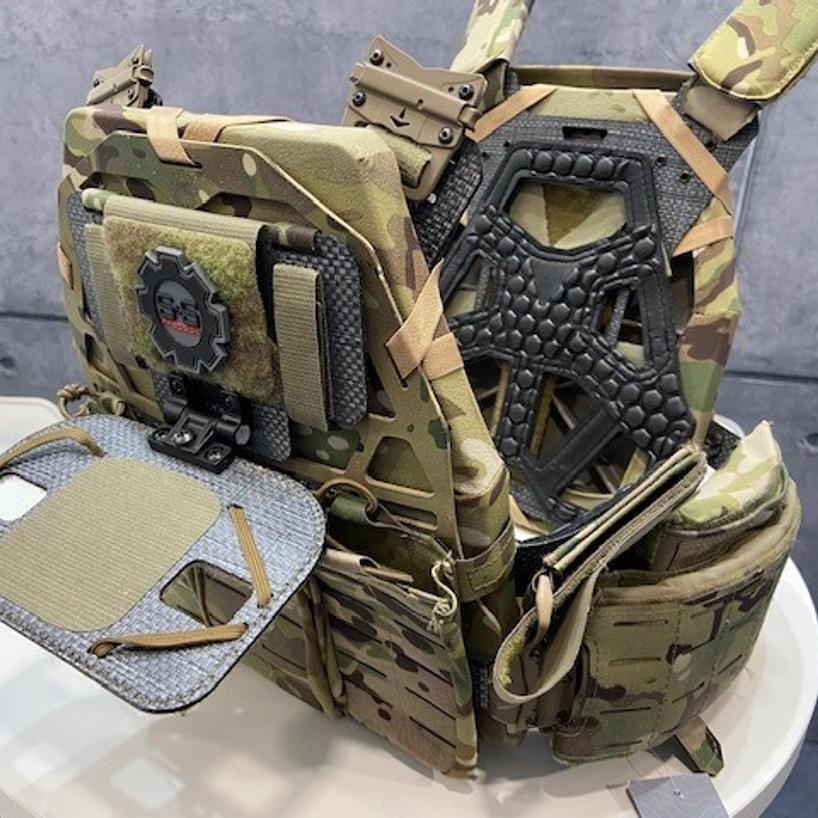
Milliken Tegris® Thermoplastic Composite fabric is designed for heavy-duty, often dangerous work. A breakthrough material that provides excellent protection against fragment, projectile or blast threats, it is engineered specifically for applications that need high stiffness, like plate carriers and belts. The fabric features a lighter total weight than traditional thermoplastics and composites without sacrificing protection.
Milliken worked closely with MMI to provide a comprehensive education on the product that positions the distributor as an expert on Tegris®. The partnership is uniquely designed to improve customer experience and provide an opportunity for partners to access Tegris® at quantities that were not previously offered.
Burlington Performance Apparel Introduces Biobased Stretch Fabric Collection
Burlington Performance Apparel showcased Synatural at the Outdoor Retailer Snow Show in Salt Lake City, Utah recently. A greener stretch option, Synatural is a unique fabric collection that features planet-positive yarn technology with natural fiber-like aesthetics, engineered for adaptable fabric solutions with lasting comfort and multifunctional performance.

Burlington’s stretch yarn technology includes custom weaves, recycled nylon, and more using Sorona, a partially bio-based polymer that delivers increased stretch performance. The fabrics in this collection include a minimum of 30 percent recycled content and 23 percent bio-based products, according to Burlington.
New Study to Explore Upcycling Microfibers Released from Laundering Clothes
Xeros Technology has partnered with the University of Surrey (UK) to jointly fund pioneering research to upcycle microfibers captured from laundering clothes into a useful, and valuable carbon material.
Microfibers are defined as tiny ‘threads’, defined as smaller than 5mm, that break off from garments through the everyday acts of cleaning and wearing our clothes. Every year more than half a million tons of microfibers are released into the world’s oceans simply from washing our clothes. Research shows that microfibers from synthetic textiles (known as microplastics) are the biggest source of microplastic pollution in our oceans.

In order to address this significant environmental problem, Xeros Technology developed a washing machine filtration device, XFilter, which captures the microfibers and prevents them from being released into our oceans.
XFilter lasts the lifetime of a washing machine and allows users to place the captured microfibers directly into their bin to be disposed of with other household waste. Microfiber waste from filtration is a complex material to recycle within existing recycling infrastructure: not only are the microfibers often mixed materials, but they also contain captured dirt and soil.
This is why Xeros have teamed up the University of Surrey – to accelerative research into improved methods to permanently reduce this continued pollution build-up in the future.
Led by Dr. Duyar, the team from the University of Surrey and North Carolina State University have developed a new method specifically designed to upcycle textile micro/nano fibers shed during the washing and drying of clothes. The method produces clean hydrogen and solid carbon nanomaterials as a by-product.
Researchers Develop Virus-Killing Clothing for Production Line
Clothing that can kill viruses and bacteria on contact helps protect the people who protect us but getting that type of protective finish onto the uniforms first responders wear is a big challenge.
University of Alberta, Canada, researchers are now working to make the science behind self-decontaminating fabrics a good fit for the production line.
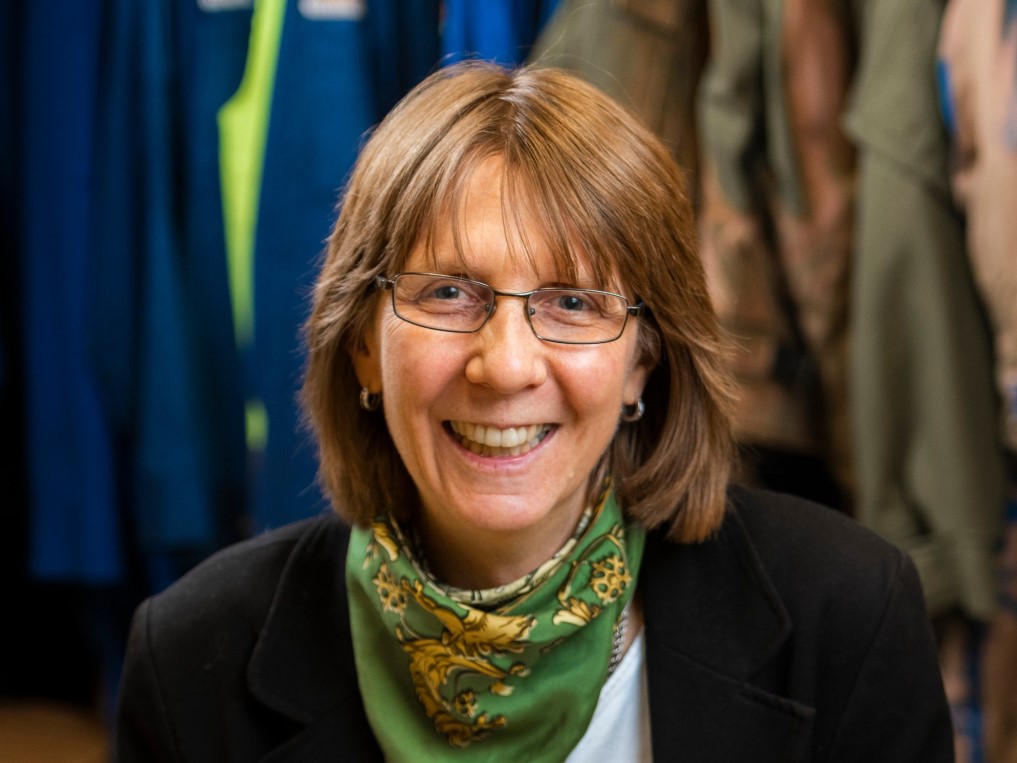
“We want to take the technology from the lab and scale it up so that it is efficient and compatible for industry-level manufacturing processes, which is a very big step,” said lead researcher Patricia Dolez, a textiles scientist in the Faculty of Agricultural, Life & Environmental Sciences.
To make wide-scale industrial production economically feasible, the one-year project focuses on improving the short- and long-term performance of a fabric finish Dolez and fellow researchers James Harynuk and Jane Batcheller are exploring. The work is supported by almost $1 million in funding from the Department of National Defence’s Innovation for Defence Excellence and Security program.
The finish uses N-halamines, compounds that can kill bacteria and viruses quickly and efficiently and can be easily grafted onto textiles.
Once scaled up, it could be applied to protective uniforms for everyone from soldiers and hospital workers to firefighters and paramedics.
Renewcell Dispatches First Shipment of Circulose
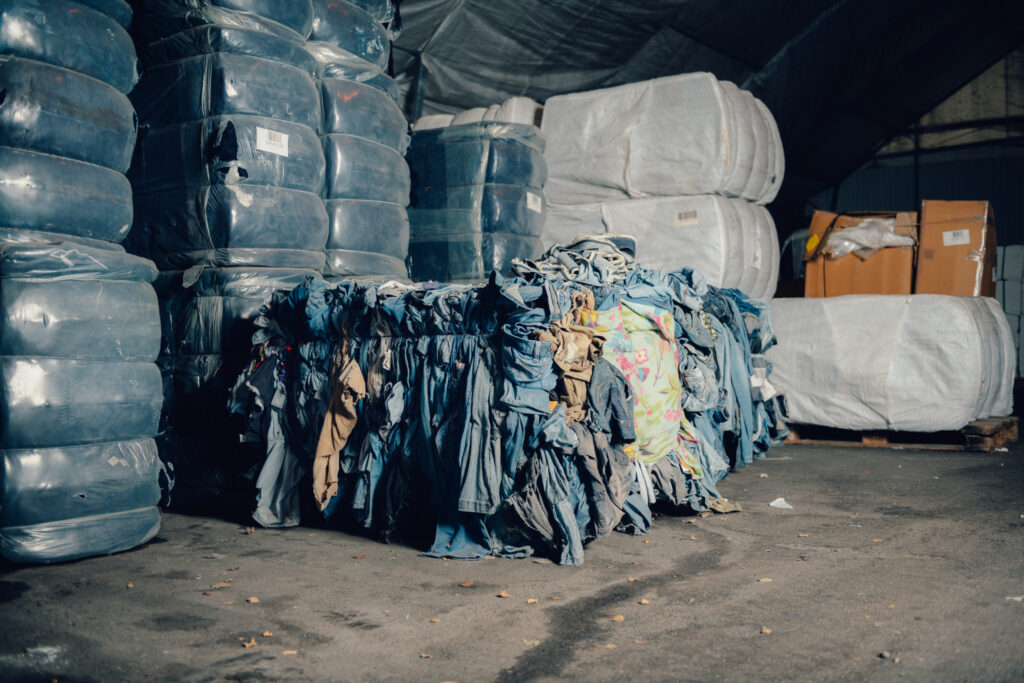
Renewcell dispatched the first shipment of Circulose® dissolving pulp produced at its Renewcell 1 plant in Sundsvall, Sweden to a customer earlier this month. This sale is the latest step in the ramp-up of Renewcell 1 to its initial capacity of 60,000 tonnes per year.
Founded by innovators from Stockholm’s KTH Royal Institute of Technology in 2012, Renewcell is a multi-award-winning sustaintech company based in Sweden, with a visionto make fashion circular.
Through its patented process, Renewcell is able to recycle cellulosic textile waste, such as worn-out cotton clothes and production scraps, transforming it into a pristine new material called Circulose®.
Tech Absorbents Receives Oeko-Tex Certification for Washable Technology

Over the past 12-months, the washable superabsorbent fabrics manufactured by Technical Absorbents Ltd (TAL) have become increasingly popular within the reusable hygiene market. During that time, not only has TAL received a huge amount interest from companies looking to create new, or improve their current range of, period and incontinence products, it has achieved Oekotex certification for its washable fabric technology offering.
TAL has been developing its washable superabsorbent fabric product offering for some time – with further innovative grades in the final stages of validation for launch later this year. The fabrics, a blend of its own Super Absorbent Fibre (SAF) and other components – have been engineered for use as the absorbent core in reusable hygiene garments. Once integrated within the final product, they provide elevated levels of absorption and retention so that the wearer can go about their daily life with confidence.
Autoneum to Acquire Automotive Business of Borgers Group
Autoneum has signed an agreement to acquire the automotive business of Borgers. The transaction is expected to close in April 2023 following antitrust clearance. The enterprise value paid amounts to €117 million. The transaction will initially be financed through a new credit facility which is available in addition to the syndicated loan of CHF 350 million renewed in October 2022. A capital increase in the amount of approximately CHF 100 million is planned for the long-term refinancing of the acquisition. Autoneum’s two largest shareholders, Artemis Beteiligungen I AG and PCS Holding AG, have agreed to participate in the capital increase in proportion to their current shareholdings.

Borgers specializes in textile acoustics protection, insulation and trim for automobiles. The product and customer range of Borgers is to a great extent complementary to the product and customer portfolio of Autoneum. Borgers’ wheel arch liner and trunk liner product lines as well as their truck business optimally complement the product range of Autoneum. Especially in the field of textile wheel arch liners, Borgers is the market leader in Europe. In addition, Borgers’ product range is distinguished by sustainable and fully recyclable products. In fiscal year 2021, the Borgers Automotive Group generated revenue of €610 million with around 4700 employees. Thanks to Autoneum’s global presence, the Borgers product portfolio adds to the sales potential for profitable growth in the medium term outside Europe.
Autoneum is acquiring Borgers from insolvency and has agreed new pricing and delivery terms with its customers. These will ensure sustained profitability and the further development of product and process technologies in both the short and long term.
Suominen Considers Closure of Italian Plant
Nonwovens manufacturer Suominen has begun a consultation procedure aimed at permanently closing its manufacturing facility in Mozzate, Italy.
The move comes after the company determined that the lines at the plant were not best suited for sustainable fibers and combined with high operating costs, means that the plant is not operating competitively.
In a statement, Suominen said it will start consultation with local trade unions regarding a plan to end production at the plant during the second quarter of 2023.
The consultation will be conducted in accordance with the Italian legislation and applicable National Collective Agreement and is aimed to be completed within 90 days. The Mozzate site currently employs 92 people, working both in production and in office roles.
Mann+Hummel Expands in Northern and Eastern Europe

The Mann+Hummel Group announced a strategic investment in M-Filter Group, one of the largest filter manufacturing companies in Northern and Eastern Europe with several production facilities in Finland and Lithuania.
Founded in 1962 in Finland, M-Filter initially produced automotive filters although today, the focus is mainly on HVAC and air filtration including HEPA filters and oil/hydraulic filters for engines. It also has a strong footprint in both OEM as well as in the commercial HVAC sector across Scandinavia and in the Baltic countries.
While the Filterpak brand will complement Mann+Hummel’s existing portfolios in commercial and residential HVAC, M-Filter will also provide a strong input in the OEM products for industrial and engine filtration, allowing Mann+Hummel to expand across the region while offering customers a broader product portfolio.
Fibertex Corp.’s North American fiber operations acquired by Stein Fibers
Stein Fibers, LLC, a leading distributor of textile products, announced that it has acquired Fibertex Corporation’s North American fiber operations.
The combination of Fibertex and Stein Fibers will expand the leading fiber product portfolio in North America and allow each company to better serve its customers.
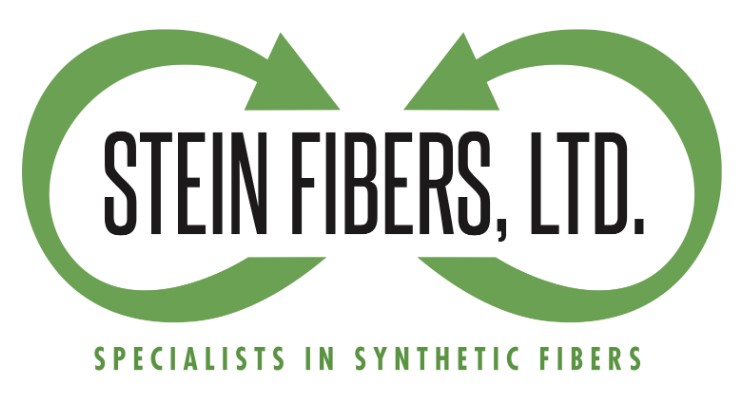
Ernest Elias, president of Fibertex, said, “I am excited to partner with the Stein Fibers organization, which shares the same core values and believe the combination will provide an opportunity to grow our relationships with both customers and suppliers.”
Jaren Edwards, president of Stein Fibers, said, “It is a privilege to partner with such a well-respected industry expert in Ernest, who takes so much pride in customer service and business integrity.”
Robert Taylor, chief operating officer of Stein Fibers, added, “We are truly excited to work with Ernest as Fibertex and Stein Fibers have similar histories rooted in a deep family commitment to the textile industry that has stretched generations. We look forward to continuing to be the premier textile partner for our customers and suppliers.”
Hollingsworth & Vose to invest $40.2 million in Virginia
Virginia Gov. Glenn Youngkin announced that Hollingsworth & Vose (H&V), a global manufacturer of advanced materials used in filtration, battery and industrial applications, will invest $40.2 million to expand its operation in Floyd County, Va.
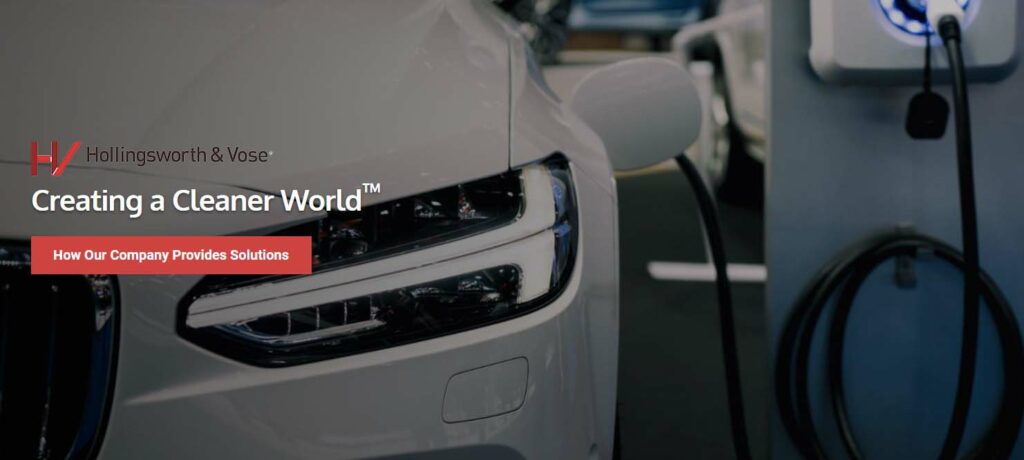
The company will add over 28,000 square feet to its facility at 365 Christiansburg Pike Northeast to accommodate new production equipment to meet increased demand. Virginia successfully competed with Georgia for the project, which will create 25 new jobs.
“Hollingsworth & Vose has generated positive economic impact and job opportunities in Floyd County for more than four decades, and this significant investment further solidifies the company’s commitment to Virginia,” said Gov. Youngkin. “Businesses with a long history of expansion in the Commonwealth offer powerful testimonials on why a Virginia location is a foundation for success, and we look forward to a continued partnership with H&V.”
NILIT launches USA-made SENSIL® EcoCare recycled premium nylon 6.6
NILIT, a global leader in premium nylon for apparel, has launched a new version of SENSIL® EcoCare recycled nylon 6.6 that is made completely from U.S. materials at its North American facility in Martinsville, Va.

The new Made in USA SENSIL® EcoCare is Berry Amendment, USMCA and CAFTA compliant and is available in a wide variety of fibers and yarns for circular knit, warp knit, seamless and woven applications.
SENSIL® EcoCare is made from post-industrial recycled nylon 6.6. NILIT uses a highly efficient recycling method that requires less energy, water and chemicals and generates a smaller carbon footprint than other recycling procedures. The NILIT recycling process retains the properties of virgin fibers for fine denier, high quality nylon fibers and yarns. Apparel made with SENSIL® EcoCare is as comfortable, functional and resilient as it is eco-friendly. Made in USA SENSIL® EcoCare is perfect for activewear, intimates, socks, hosiery, ready-to-wear, workwear, light industrial, medical and military end uses.
NILIT manufactures a full portfolio of sustainable SENSIL® premium nylon 6.6 products to give designers the beautiful, environmentally considerate performance fabrics they need to create apparel collections that respond effectively to consumer demands.
Oerlikon investing in surface solutions assembly, production site in Switzerland
Oerlikon, a global leader in surface technology, polymer processing and additive manufacturing, is planning a new state-of-the-art assembly and production site for its surface solutions and equipment businesses.
The group’s current locations in Wohlen, Dottikon and Winterthur will be merged at the Reichhold Campus in the canton of Aargau. With this investment, Oerlikon is affirming its commitment to Switzerland as a business location.

Oerlikon is developing a new, attractive site on the Reichhold Campus in Hausen/Lupfig together with HIAG Immobilien Schweiz AG. This state-of-the-art site will provide customers with Oerlikon Metco thermal spray solutions, including equipment assembling and production services. The new location will enable further improvements in productivity and more optimized operational processes to ensure the continued first-class products and services that customers have come to expect from Oerlikon.
The Campus Reichhold site, spread across a total of around 14 500 m2 of production and office space, will also serve as a sales and distribution center for the materials product line, house an IT competence center, and offer around 230 employees an attractive workplace. A strong focus will be placed on sustainability and innovative approaches to future-oriented energy, mobility and utilization concepts.
Construction is scheduled to start in the Spring of 2024, and the new location is expected to be ready for moving in from mid-2025 onward. At the current sites, all activities and work will continue as usual. According to the current plan, the move will begin in the summer of 2025 and will take place gradually to ensure the continued processing of all customer orders.
New York state bans PFAS in clothing
New York has become the latest US state to ban the manufacture and sale of garments and textiles that contain PFAS (perfluoroalkyl and polyfluoroalkyl substances).
Governor Kathy Hochul has now signed off on Senate bill S6291A which was passed by the state legislature in May last year and came into effect at the end of December 2022.
PFAS – dubbed ‘forever chemicals’ for their durability in the environment – are widely used in water- and stain-proof coatings for textiles but have been linked to major health risks including liver damage, thyroid disease and cancer. The PFAS clothing ban takes effect in 2025. The state of California was the first to ban PFAS in clothing.
Sonobond Ultrasonics President Retires
Janet Devine, president of Sonobond Ultrasonics, Inc. announced that she will retire effective January 3, 2023.
2022 began with her decision to retire as president of Sonobond at the end of the year. General Manager, Manning Smith IV, will be taking over as president and Devine has happily agreed to continue in a technical advisory position during a transition period.
Last year Devine announced that Sonobond had become a part of Inductotherm Group’s Welding Division. Although Sonobond has been a wholly owned subsidiary of Inductotherm Group’s parent company for over 30 years, the company now has greater access to advanced power supply technologies through the Welding Group’s global service contacts and expanded supply chain resources.
“I leave Sonobond Ultrasonics after starting as a junior member of the team that invented ultrasonic metal welding, as well as participating in the many other ultrasonic innovations the company has achieved. These include being part of the company’s successful development of ultrasonic welding equipment for the non-ferrous metals industry, and the growing market for EV vehicles. It has been an interesting journey!
“I am confident Sonobond’s success will continue under Manning Smith’s and Inductotherm Group’s expert technical and management capabilities,” Devine said.


